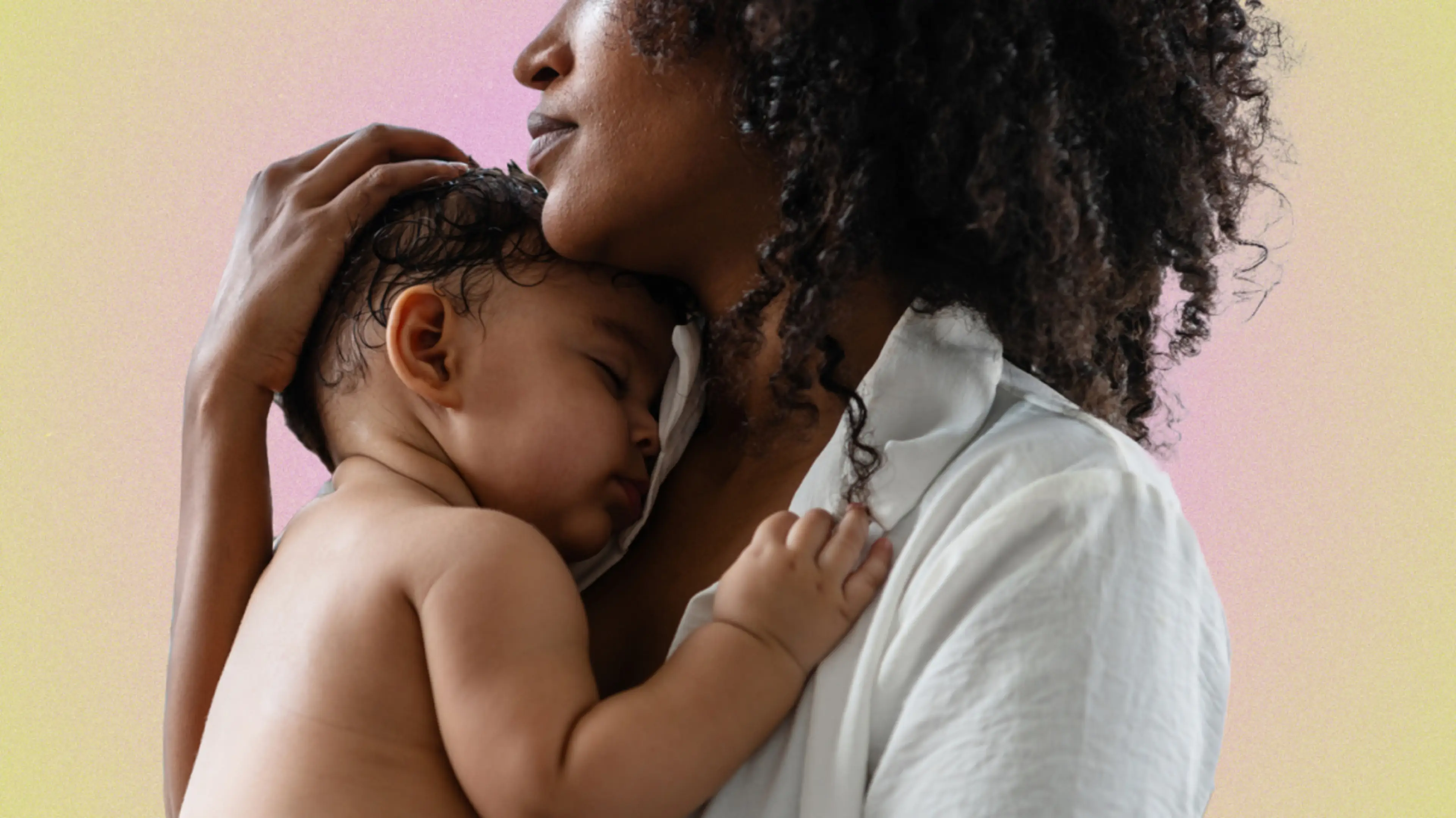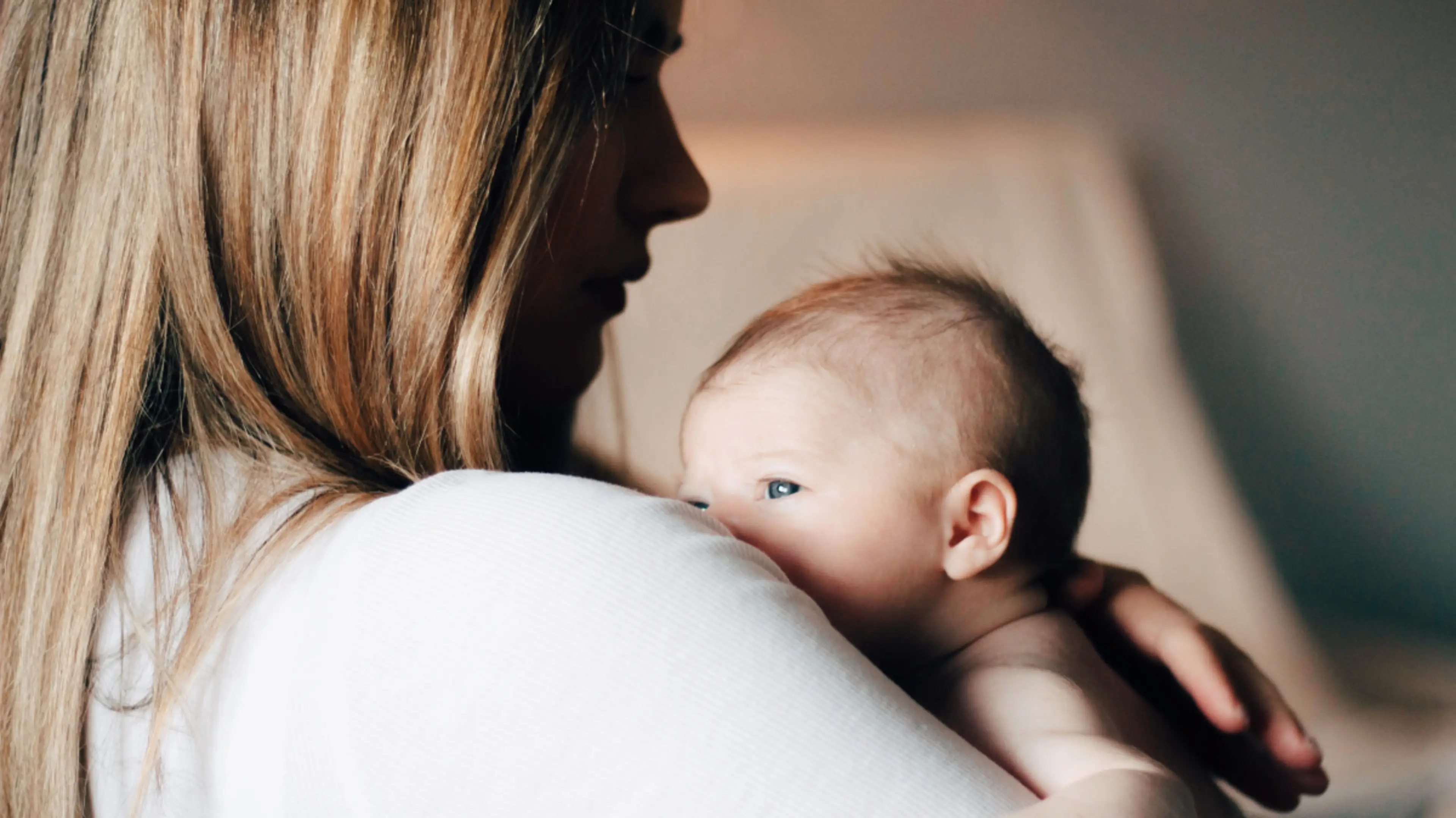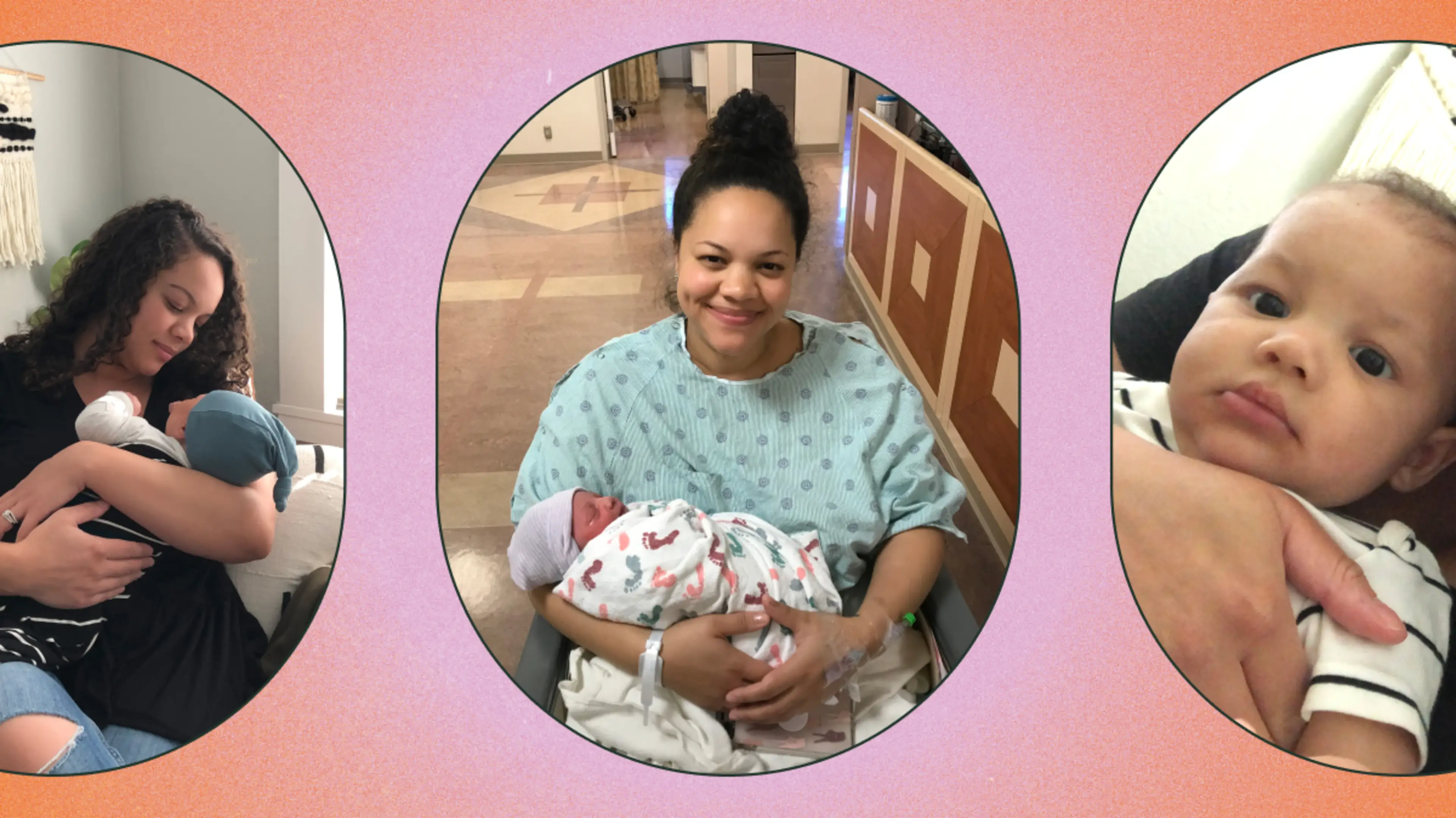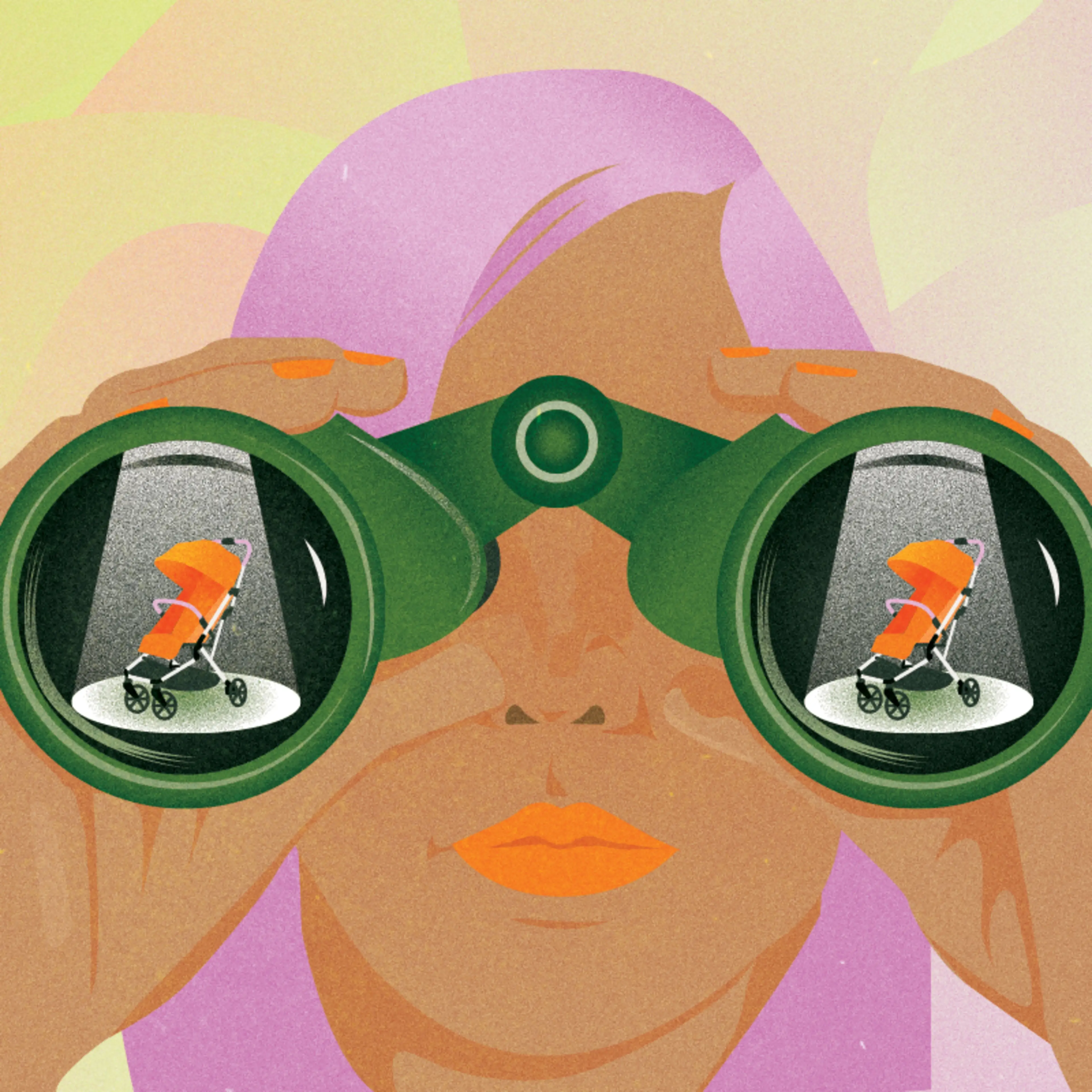Being a parent often comes with a bit of worrying. It’s totally natural to have small moments of worry over your new baby (Are they eating the right amount? Are they growing at the expected rate? Are they healthy?) and over yourself as a new parent (Am I doing this right? What if I’m not providing enough for my baby?).
But when the worries get more frequent, more persistent and start disrupting your day-to-day life, it’s a bigger problem. It may be postpartum anxiety, a serious mood disorder that requires professional support to help manage. From symptoms and causes to diagnosis and treatment, here’s everything to know about postpartum anxiety and how to get help.
If you or a loved one are experiencing a psychiatric emergency, immediately call or text 9-8-8 to reach the national mental health crisis hotline, or visit your nearest emergency room.
What Is Postpartum Anxiety?
Postpartum anxiety is one of the identified Perinatal Mood and Anxiety Disorders1 (PMADs) that can affect someone after having a baby. Just like generalized anxiety disorder2 , postpartum anxiety is a condition marked by constant, uncontrollable, severe worrying accompanied by noticeable physical symptoms like changes in sleep, reduced appetite, and physical discomfort.
The key difference between generalized anxiety disorder and postpartum anxiety is that postpartum anxiety is directly related to having a baby, both in the timing of when the anxiety starts and the focus of the anxiety. Postpartum anxiety typically causes irrational fears or excessive worries about events that are unlikely to happen, commonly about dropping your baby or harming them in some other way, though not limited to those fears.
What are PMADs?
PMAD, or Perinatal Mood and Anxiety Disorders, is the umbrella term for any mood disorder that occurs as a result of pregnancy and/or having a baby, including:
Pregnancy depression
Postpartum depression
Postpartum generalized anxiety disorder
Postpartum panic disorder
Postpartum social anxiety disorder
Postpartum OCD
Postpartum mania/postpartum bipolar disorder
Postpartum psychosis
There’s a wide range of types and severity of PMADs, and it’s possible to be affected by more than one at the same time.
How common is postpartum anxiety?
Studies have shown that postpartum anxiety affects up to 21% of new parents3 . Although other studies report less (14% from one source4 ; 18% from another source5 ), some medical experts say it’s possible that it’s actually more common than that6
. Some cases of postpartum anxiety may go undiagnosed if people don’t report their symptoms to their healthcare provider.
When does postpartum anxiety start?
Postpartum anxiety can start at any point in the first 12 months7 after introducing a new baby into your family. Some birthing parents notice symptoms of anxiety almost immediately after birth as pregnancy hormones begin to drop. Other parents, including non-birthing parents, don’t develop anxiety symptoms until their baby is nearly a year old.
How long does postpartum anxiety last?
Although it can vary from person to person, postpartum anxiety lasts longer than a few weeks (if symptoms last fewer than two to three weeks, it’s considered “baby blues8 ,” a less severe form of postpartum depression or anxiety). Even with treatment, postpartum anxiety can last for months or even years, though treatment does greatly reduce the length of time.
What’s the difference between postpartum anxiety and postpartum depression?
If you had already heard about any of the PMADs, it was most likely postpartum depression you heard about, since it gets the most attention out of the postpartum mood disorders. It’s even possible that you heard about postpartum depression from your doctor after telling them about changes in mood or behavior you’ve experienced after having a baby.
“[People] experiencing postpartum depression commonly experience symptoms of anxiety, although not [everyone] suffering from anxiety is depressed,” Dr. Stephanie Collier writes in Harvard Health Publishing9 . While postpartum depression does have a few symptoms in common with postpartum anxiety, their main symptoms are different.
The defining symptoms of postpartum depression are excessive sadness, frequent crying, and/or feeling emotionally numb. On the other hand, postpartum anxiety is defined by excessive and irrational worry. It’s possible to experience symptoms of both disorders at the same time, either in equal intensity or with one feeling more prominent than the other.
“Establishing the correct diagnosis is important, as [people] with postpartum anxiety may not respond as well to certain treatments for depression,” Dr. Collier says.
Postpartum anxiety vs. normal worrying
As we said before, it’s totally normal to worry a little bit when you’re a new parent. In fact, it’s almost expected—you’re brand new to this, and even if you’ve had a baby before, every baby is different. Small worries from time to time that are relatively easy to get over are a natural part of the parenting process.
But when those worries feel like they never stop—lasting all day, distracting you from other things, keeping you up at night and unable to calm down—they’ve officially become “excessive” and are a sign of postpartum anxiety.
Postpartum Anxiety Symptoms
Excessive worrying is a key symptom of postpartum anxiety, but this disorder can come with a wide variety10 of other symptoms too. Not all of them are emotional symptoms, and it’s possible to experience some but not all. Here’s a list of things to look out for:
Physical symptoms:
Disrupted sleep or insomnia
Fatigue
Increased heart rate or spikes in blood pressure
Nausea
Shortness of breath or hyperventilation
Loss of appetite
Fidgeting
Tense muscles, including jaw clenching
Shaking/shivering
Unexplained sweating
Emotional symptoms:
Difficulty calming down or moving on from troubling thoughts
Racing thoughts, especially about worst-case scenarios
Obsessing over worries
Fixating on the potential for danger in any scenario
Irritability and frequent anger
Feeling on edge or fearful
Behavioral symptoms:
Avoiding certain activities, people, or places because of perceived danger
Being overly cautious about situations that aren’t typically dangerous
Checking things over and over again
Trying to control situations or people
When should I call my doctor?
If you experience any of the above symptoms, it’s time to have a chat with your doctor. Don’t wait until your next appointment; set one up as soon as possible. Contact your doctor immediately if:
You’re afraid you may harm yourself or your baby
Your anxiety is lasting for most of the day several days in a row
Your worries or other symptoms are getting worse
You’re afraid you aren’t bonding with your baby
What Causes Postpartum Anxiety?
There are several reasons why someone may develop postpartum anxiety. The most common causes are:
Hormone changes after giving birth (everyone who gives birth experiences a drop in pregnancy hormones, but some may be more affected than others)
Lack of sleep, especially when needing to wake frequently to care for a newborn
Stress, including learning to take care of a new baby, constantly getting unsolicited advice from others, navigating changed relationship dynamics (especially with partners, parents, and other children), and trying to keep up with daily life on top of a new baby
Having a baby with health concerns
Difficulty recovering from pregnancy or birth, especially if the pregnancy or birth was difficult or traumatic
What are some risk factors for developing postpartum anxiety?
While it’s possible for any new parent, including birth parents, partners and adoptive parents, to develop postpartum anxiety, you’re more likely11 to experience symptoms of anxiety if you have:
A personal or family history of mental health conditions, including anxiety, depression, PTSD and OCD
Previous miscarriage or child loss
A baby with health concerns, including premature birth
A difficult pregnancy, especially with health concerns
A difficult/traumatic birth
Teen pregnancy
Unexpected pregnancy
Lower socio-economic status
Little or no support system
Financial, job, and/or housing instability
If you believe you may be at a greater risk for postpartum anxiety, the best thing you can do for yourself is to get ahead of any symptoms and talk to someone before baby arrives or as soon as possible. Don’t wait for the first symptoms to start showing; talk with a mental health professional early on about your concerns around developing postpartum anxiety and any risk factors you may have.
How is Postpartum Anxiety Treated?
There are several options for postpartum anxiety treatment, both medicated and non-medicated. But before seeking treatment, it’s important to have your healthcare provider evaluate your symptoms and give a diagnosis to make sure you get the best treatment for your individual needs.
A diagnosis is usually given after you complete an initial screening (often a survey of common symptoms) and sometimes further questioning from your doctor. Everyone is screened for postpartum depression and anxiety during the six-week postpartum checkup appointment, but even if you’ve already had that appointment and didn’t have any symptoms when that screening was done, it’s important to talk to your doctor again. And keep in mind that the best tool for getting a diagnosis and proper treatment is to be open and honest with your provider about your symptoms.
When deciding on a treatment, depending on your medical history, any current medications, and your own personal preference, your doctor may recommend medication treatment, non-medication treatment, or a combination.
Non-medicated treatments for postpartum anxiety
Cognitive Behavioral Therapy12 (CBT) for postpartum anxiety, which includes recognizing toxic thought and behavior patterns, learning mindfulness techniques, and developing healthy coping strategies
Support groups (in-person and/or online), including many resources from Postpartum Support International13
Baby snuggles—no kidding! Holding your baby close to you, especially skin-to-skin can release oxytocin15 in your brain, helping you to relax, improve your mood, and feel more bonded with your baby.
Medicated treatments for postpartum anxiety
There are a lot of options for anti-anxiety medication, and whatever your doctor recommends will depend on how each type of medication might interact with other medications or health conditions. And keep in mind that you may have to try a few different medications before you land on the one that works best for you.
Selective serotonin reuptake inhibitors16 (SSRIs) were originally created to treat depression, but they’ve proven effective for anxiety and other mood disorders. They prevent neurons from reabsorbing serotonin, ensuring that there’s plenty of serotonin around in your brain. Commonly prescribed SSRIs include fluoxetine (Prozac), paroxetine (Paxil), sertraline (Zoloft), fluvoxamine (Luvox), citalopram (Celexa), and escitalopram (Lexapro).
Serotonin-norepinephrine reuptake inhibitors17 (SNRIs) work exactly like SSRIs, but they target norepinephrine (a form of adrenaline responsible for stress responses) as well as serotonin. Commonly prescribed SNRIs include Duloxetine (Cymbalta) and Venlafaxine (Effexor XR).
Tricyclic antidepressants(TCAs) also increase serotonin and norepinephrine by blocking their reabsorption into neurons, but they also target additional neurotransmitters, which can lead to unwanted side effects.
Norepinephrine and dopamine reuptake inhibitors18 (NDRIs) block the reabsorption of norepinephrine and dopamine, but not serotonin. The most common NDRI prescribed for anxiety is bupropion (Wellbutrin). Keep in mind: there are plenty of other NDRI medications, but they aren’t typically prescribed specifically for anxiety.
Monoamine oxidase inhibitors19 (MAOIs) work a little differently. Instead of preventing reabsorption into neurons, they prevent the enzyme monoamine oxidase from fully removing any neurotransmitters from the brain. Since they target more than just serotonin, dopamine, and norepinephrine, they can cause unwanted side effects.
Can I take anti-anxiety medication while breastfeeding?
Maybe. In 2007, the American College of Obstetricians and Gynecologists published a list of psychiatric medications20 and their risks of producing side effects in breastfed infants, showing some anti-anxiety medications to be safer for breastfeeding than others. Before prescribing any medication, your healthcare provider will want to know if you’re breastfeeding or pumping.
Any medication you take is going to pass into your breast milk in some amount, though potentially very small. After exposure to anti-anxiety medication via breast milk, a breastfed baby might experience mild drowsiness or irritability, Dr. Kristin Lasseter, a reproductive psychiatrist and founder of the Reproductive Psychiatry Clinic21 in Austin, Texas, tells Babylist. “[The medication] is secreted in very minimal amounts in breastmilk,” Dr Lasseter says. “These side effects are typically rare and the majority of babies have no issues” after exposure.
Can Men or Partners Have Postpartum Anxiety?
Any new parent can experience symptoms of postpartum anxiety. Although postpartum anxiety can sometimes stem from changes in hormones after giving birth, that’s just one of many possible causes. Whether they’re the birth parent, the partner or spouse of the birth parent or adoptive parents, all new parents can still experience the stress and sleeplessness that comes with bringing home a baby.
One study22 found that up to 18% of men experienced significant anxiety symptoms after their child was born. Another study23 measured that 8% of adoptive parents experience postpartum mood disorders (sometimes called post-adoption depression). Unfortunately, not enough research has been done yet to understand how postpartum mood disorders affect non-birth partners who don’t identify as men. While most PMAD resources focus on birth parents, there is support out there for partners and adoptive parents. Postpartum Support International24 provides direct support as well as a list of helpful resources for partners25 and adoptive parents26 experiencing anxiety and depression.
If you are experiencing any of the symptoms listed in this article or if you feel you may be at risk for postpartum anxiety, please talk with your doctor and reach out to a mental health professional to seek treatment. And know that you are not alone in this journey.











